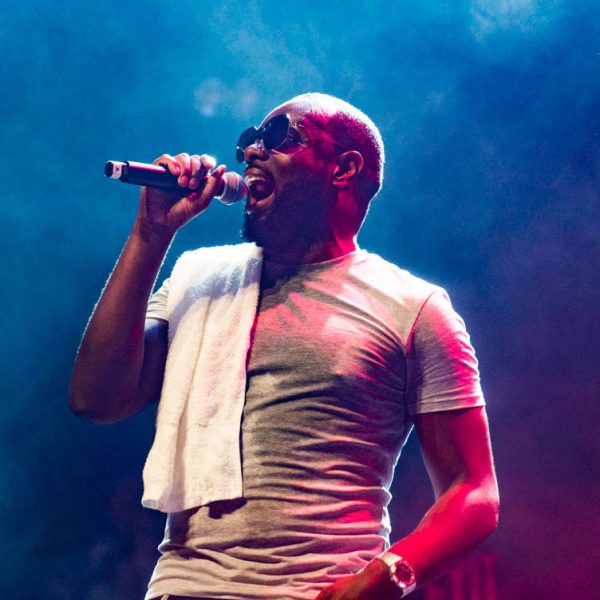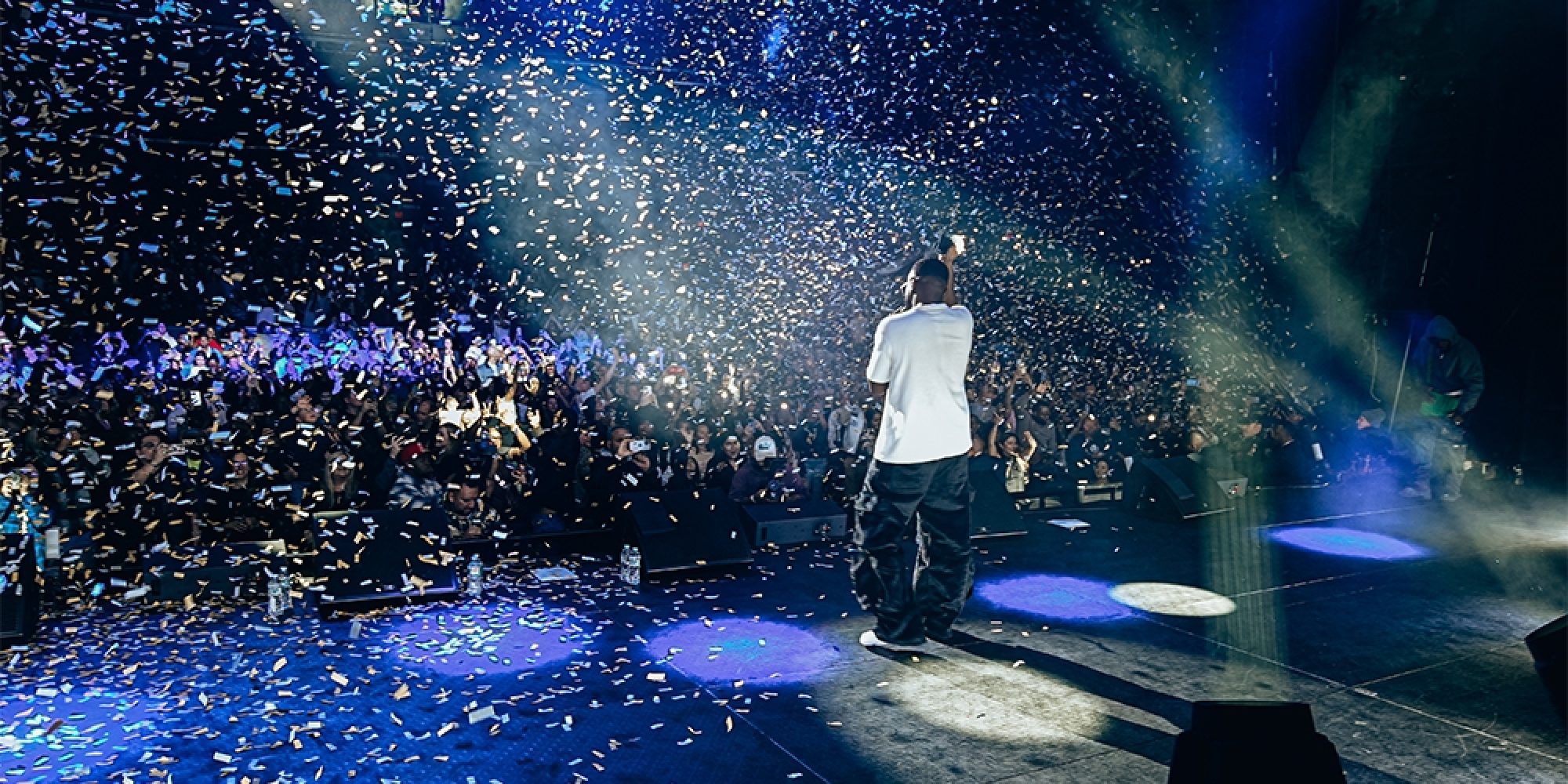Gims, formerly Maitre Gims, is a fantastically successful French-Congolese singer, rapper, producer and songwriter. Born in Congo the son of Djanana Djuna, one of Papa Wemba’s singers in the band Viva la Musica, he came to the world as Gandhi Alimasi Djuna. He later adopted the name stage name Gims because “it sounded American.” He told me this at a press event on November 1, the night before his sold-out show at the Theater at Madison Square Garden on November 2. Gims’s hit songs rarely sound like the Congolese music of old, but he insists it is the essence of his art.
“I have been in this music since I was little,” he told me, “the Congolese rumba. My father was singing with Papa Wemba, who left us. So I think this allowed me to have my own style. Maybe because I was also a fan of his music, I was able to mix it with pop, with rap. So it's something that has helped me to sculpt my identity today.” Wemba, of course, was both adored and criticized for his ventures beyond the standard boundaries of Congolese pop, but he too always professed a near-religious fidelity to rumba.
In Gims’s generation, expectations are different, and his outsize success in France is formidable. “In Congo today,” he says, “I hold a very important place with the people because I am an ambassador of the country and an ambassador of music. It's true that I have a relationship with Congo that is different, that is almost political. That has always been the case with Congolese singers, they have always been very linked to politics despite themselves.” Cultural politics in Congo is a hot topic. Even though Congolese musicians have rarely sung outright politics, it has always a constant, hidden, subscript.

Gims was willing to be more direct when asked his thoughts on the rise of Nigerian Afrobeats. He said, “I think that at the risk of perhaps offending some people from Nigeria, Congolese music, Congolese rumba, is the basis of African music. It's the culture, it's the cradle. That's where everything starts, and so I think that we do not feel as many thrills as with Congolese rumba. Anyone can tell you who Koffi Olomide is, you ask Wizkid, you ask Rema, anyone, they are all fans of Koffi Olomide. They respect such people because they are legends. They are people who have shed light on African music. For example, Tabu Ley Rochereau had already played the Olympia when the films were still in black and white. There was no Nigerian music, even Ivorian music, which I love and particularly appreciate. But Congolese rumba is incomparable.”
That was a nice touch, tying his own arrival at Madison Square Garden to Tabu Ley’s landmark performance at the Olympia in Paris in 1968. But Gims seemed genuinely humbled by the prospect of performing for 5000+, mostly white, largely French, fans at MSG. “I am very grateful to be able to sing in this magnificent hall that is sold out. Sold out! There are so many talented artists who have not had the chance to sing in this hall. So I hope to live up to them.”
That he did. At the Garden Theater, he had the crowd enraptured, alternating between rapping and singing, rolling out the hits backed by a taut, versatile five-piece band. Gims’s tenor voice is warm and horn-like, and powerfully authoritative. It filled the hall, easily riding above the band’s clave-pop grooves. The show previewed a few songs from his upcoming EP, including his latest video, “Sois Pas Timide,” filmed in Montreal.
Here are some images and a video I shot at the show. Frequent readers will note that the images are not up to my usual quality standard. That’s because someone in Gims’s press team screwed up and failed to credential me to enter MSG with my cameras. In the end, I had to leave them at security and make do with my phone. (The thumbnail and banner images were provided by the promoter.)
But the show was electrifying, a proud moment for Afro-Paris, and for global Congo music.
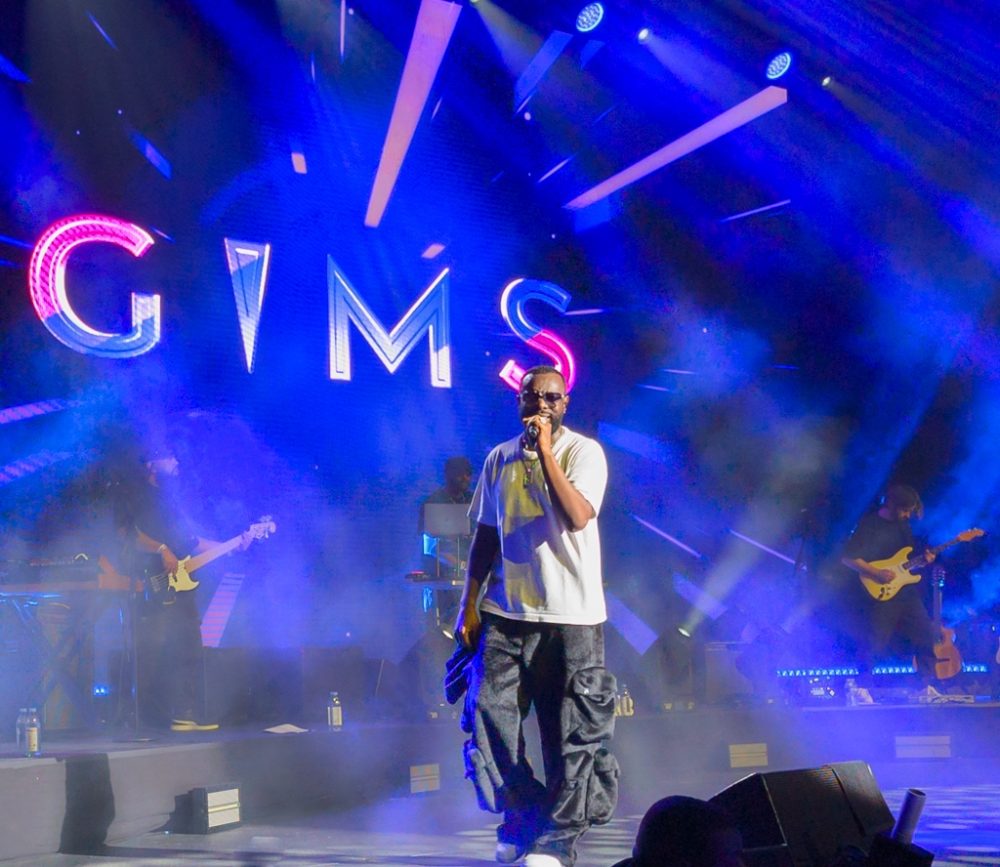

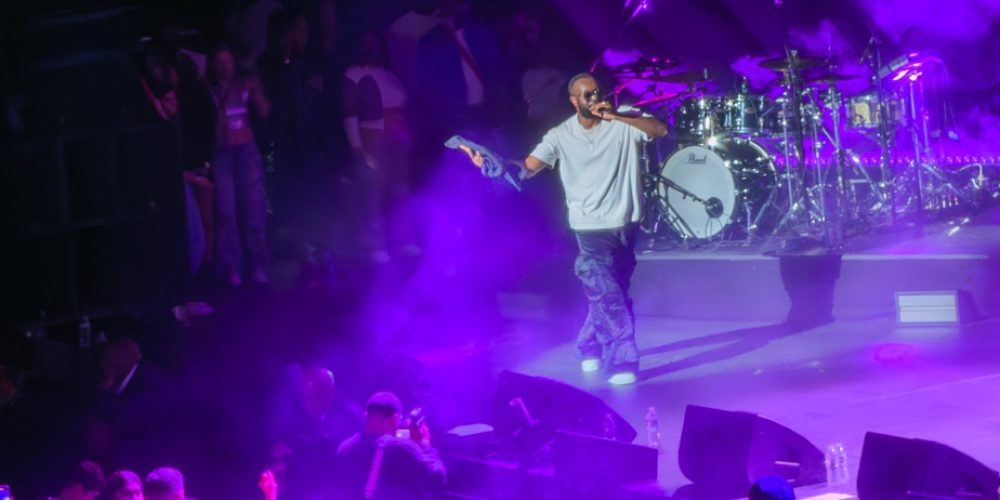
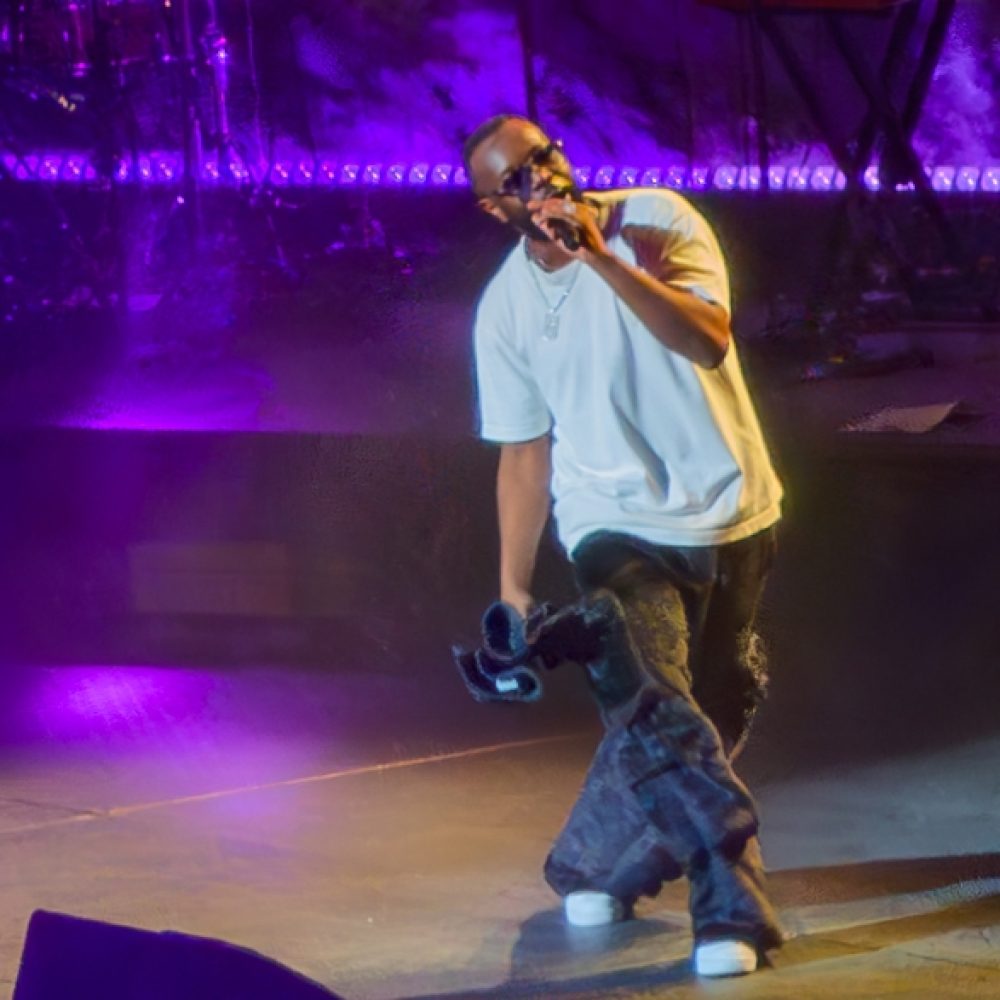
.
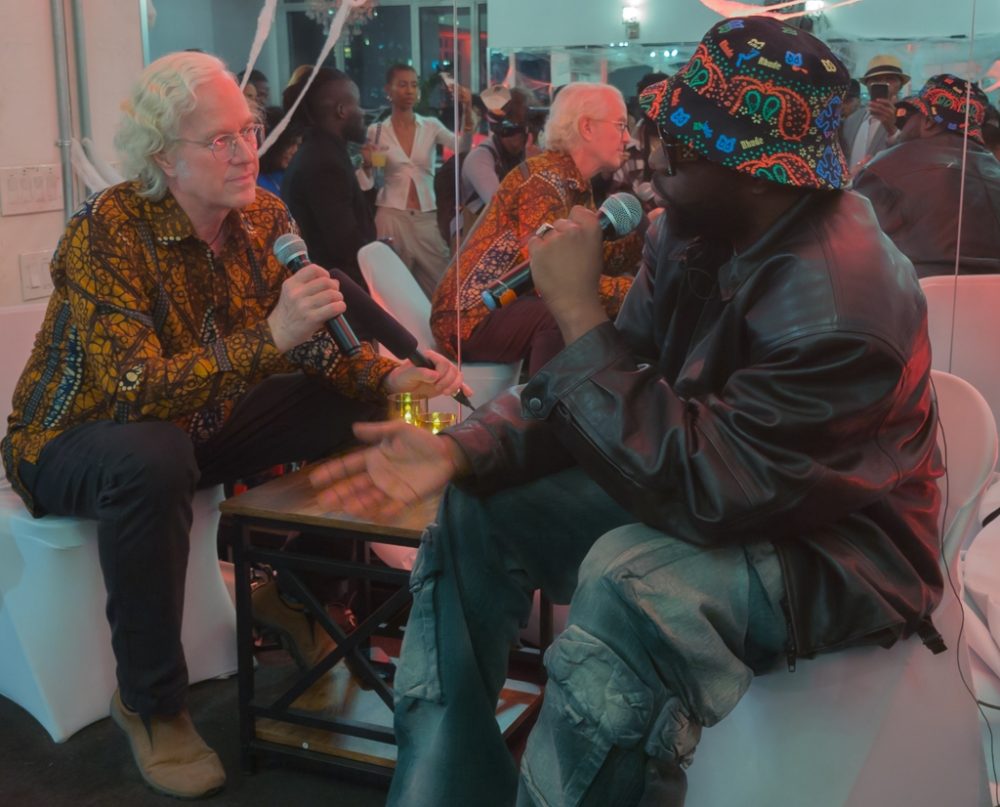
Related Audio Programs
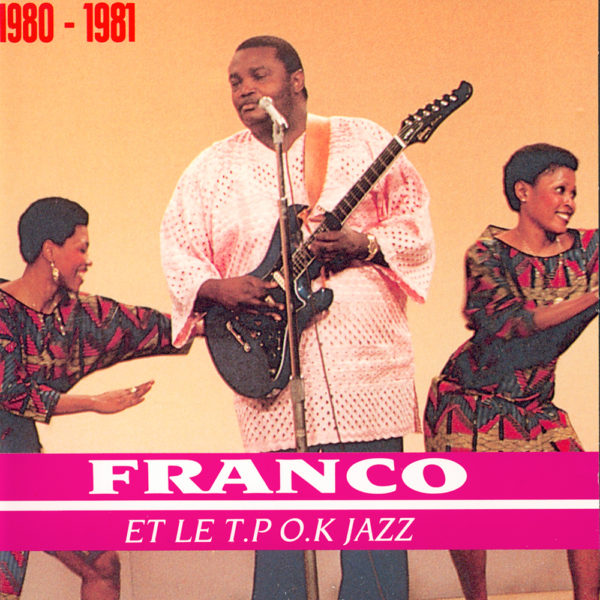
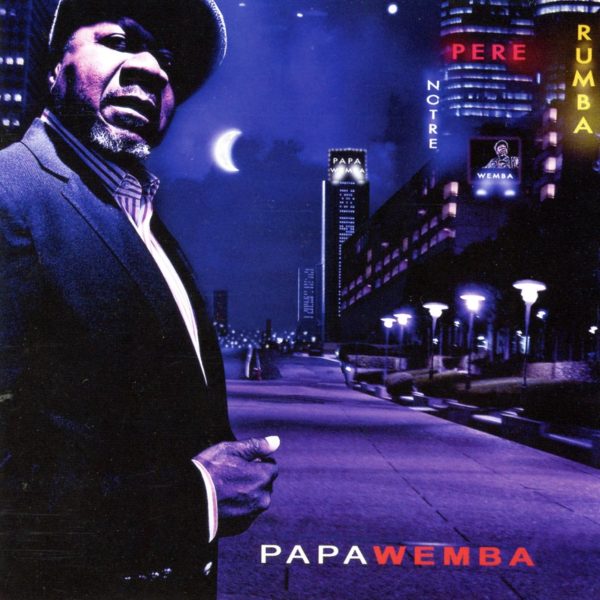
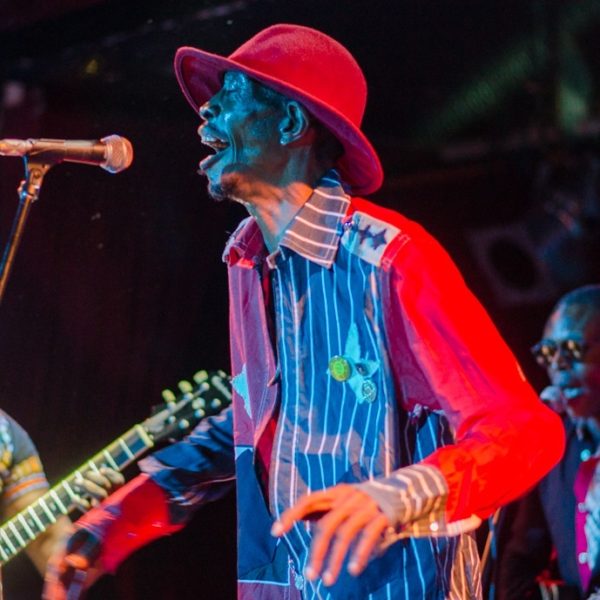
Related Articles
